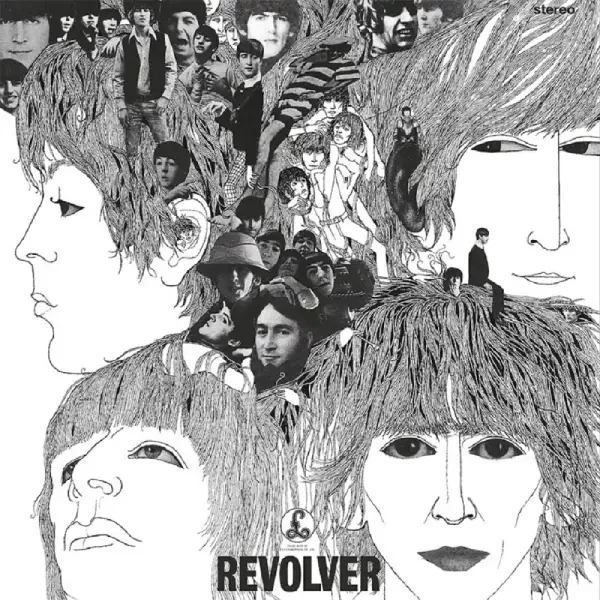The Beatles
– Revolver
Studio pop never sounded so wired. Revolver grabs you by the collar, spins you around, and shoves you headfirst into a psychedelic jukebox where sitars hum next to string quartets and tape loops behave badly. This is the sound of a band dismantling their own fame in real time, piece by brilliant, baffling piece. It’s not about rebellion or peace signs. It’s about creation, and the sheer thrill of pushing pop until it starts to bleed colors you’ve never seen.

The real triumph of Revolver is how it blends the intimate with the outlandish. McCartney crafts polished miniatures and emotional sucker punches, while Lennon steps into his dreams and drags the mic in with him. Harrison, often the quiet one, brings in something acidic and sharp, spiritually confused and musically lethal. Ringo Starr, long underestimated, finds groove after groove that ties these wild ideas together without making a fuss. It’s an album full of personalities but zero passengers.
You don’t have to be stoned to feel like you’re hallucinating by track five. It’s not about experimenting for its own sake. It’s about ripping open the seams of conventional songwriting and stuffing in everything they’d heard, read, or wondered about. And somehow it still fits in under 35 minutes. No grand gestures, just a sudden, brilliant shift in the musical gravity of the ’60s.
Choice Tracks
Eleanor Rigby
There’s no escape from this one. It’s a pop song written like a short story, dressed up with a string octet that stabs more than it swells. McCartney paints loneliness in two minutes flat, and you feel it in your ribs.
Tomorrow Never Knows
A sonic black hole at the end of the record. Lennon intones like a guru while tape loops and reversed guitars swirl like smoke. Ringo pounds out something that barely qualifies as a drum beat but hypnotizes anyway. It’s the future in mono.
And Your Bird Can Sing
Lennon sneers through a smile here. The twin lead guitars jangle like they’ve got something to prove, and maybe they do. It’s catchy, caustic, and colder than it first sounds. A pop grenade with a shiny pin.
I’m Only Sleeping
That guitar? It’s running backward. The vibe? A perfectly drugged-out lullaby. Lennon’s vocal slumps over the melody like a man who hasn’t left the bed in three days—and likes it that way.
Taxman
Harrison’s bitter and finally gets the first word. It’s not peace and love—it’s pocketbooks and paybacks. The riff is all bite, McCartney’s guitar solo stings like vinegar, and George snarls like a guy who’s seen the accountant.
Revolver is The Beatles’ pivot from pop kings to sonic alchemists—acid-drenched, razor-sharp, and emotionally loaded. It’s a kaleidoscope with teeth, still turning heads decades later.
Building on the developments of their late 1965 release Rubber Soul, Revolver was the Beatles’ last recorded endeavor before they retired from live performance and their most overt use of studio technology to date. Since then, it has gained respect for its variety of musical styles, sounds, and lyrical content, making it one of the best and most inventive albums in popular music history.

